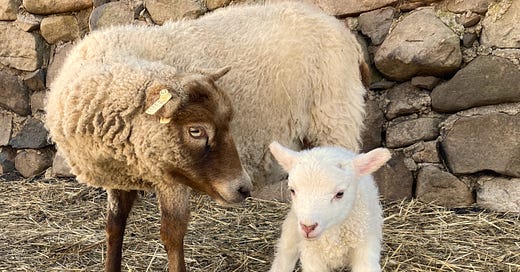In an attempt to protect their monopoly on the wool industry, England tried hard to discourage one from ever taking hold in its American colonies. To that end, the exporting of sheep to America was expressly forbidden, but by 1655, a few smuggled sheep had multiplied to 10,000. Oops! I’m not sure what I find more amusing; that colonial sheep smuggling was actually a thing or that breeding sheep became such a subversive (and successful) act of independence.
Clearly unable to completely stop America’s burgeoning sheep industry, British Parliament in 1699, attempted to at least contain it by enacting “The Woolens Act”. The law prohibited the export of any woolen items from the American colonies (and Ireland) and the import of textiles from any country other than Britain. Though the law had a devastating effect on Ireland, and effectively crushed its economy - it was not well enforced in the American colonies.
That benign neglect ended when King George III ascended the throne and made wool trading in the Colonies an offense punishable by cutting off the offender’s right hand. That renewed and elevated threat, along with various other taxes and tariffs, set the stage for the rebellion that soon led to the Revolutionary War.
Many colonists boycotted British goods and proudly wore homespun clothes as a sign of their patriotism. And while their male counterparts formed the “Sons of Liberty” and rioted drunkenly in the streets, the women of colonial America held spinning bees. They came together not only to produce yarn and textiles but as a show of their own solidarity and patriotic fever.
Join us Sunday April 6th from 10-4 at Hill Stead Museum as we shear our sheep and demonstrate how their wool can be turned “from sheep to shawl”
There will be rebellious lambs, sheep shearing, lots of spinning, weaving and solidarity. Public displays of drunkenness, rioting and looting, however, will be strongly discouraged.
See you there!




I wish you'd been my history teacher who you would have been so much more fun to listen to than the dry teachers I had